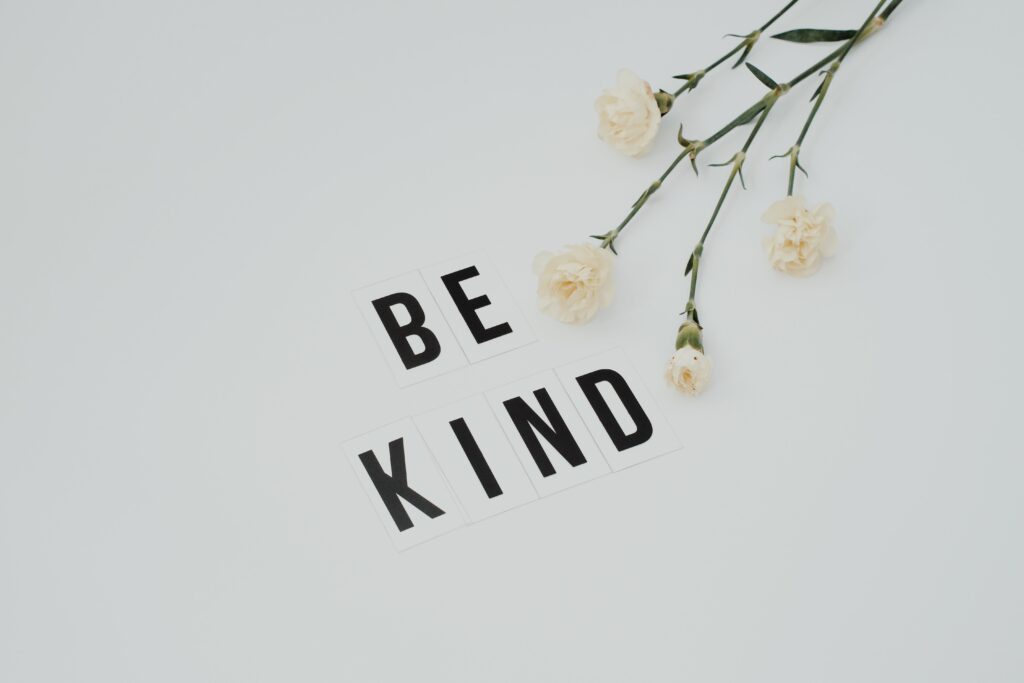In a fast-paced world where competition is fierce, and the pursuit of success often seems ruthless, it’s easy to believe that kindness is a weakness. However, the truth is quite the opposite. Kindness is a powerful quality that can give you a significant edge in both your personal and professional life.
If you’re an up and comer in the business world, it’s easy to look at someone like Steve Jobs- a well known jerk – and think that you too should act that way to be successful. Not so, my friend. Jobs may have been successful, but he’s the exception to the rule.
Four reasons kindness can give you an edge
Michael Hyatt, a well known coach and former CEO of publisher Thomas Nelson, offers these four reasons kindness can be good for your career:
1. A bully thinks he knows the answers so he won’t get ahead.
If you’re focused on winning at all costs you can’t stop and see that other people can and will help you win. If you’re focused on knowing all the answers you won’t create an environment for innovation. You have to open your mind, heart and ears to what the team can offer.
2. A bully hogs the spotlight and takes all the credit.
If you’re focused on getting more credit from the higher-ups than your team or peers, then you’re hampering enthusiasm. Everyone needs praise and to feel valued. If you hog all the praise because you’re taking credit for other people’s ideas, then you’re hindering production. You have to acknowledge others when they do something right, and tell the higher ups if a great idea wasn’t your idea.
3. Workplace bullies micromanage and mistreat people.
There’s a TON of evidence that empowerment, empathy and respect are what get results. Micromanagement just doesn’t work. Focus on trusting your peers and your team.
4. Workplace bullies don’t set clear expectations.
If there’s no clear expectations then people can’t get their work done. Clarity is so, so, so valuable to success of individuals, teams and the company at large. Without it, the team will fail. Be sure your instructions for work assignments are clear, your expectations about performance are clear, and your goals are clear.
Kindness isn’t a one-size-fits-all concept; it comes in various forms. It could be as simple as offering a warm smile, lending a helping hand, or actively listening to someone in need. Kindness doesn’t require grand gestures, and it doesn’t discriminate based on social status, race, or background. It’s a universal language that transcends boundaries and unites people from all walks of life.
By embracing kindness, you not only gain an edge in your pursuits, but you also contribute to creating a more compassionate and harmonious world. So, let kindness be your guiding principle in your journey towards personal and professional success, and you’ll find that it’s a powerful tool that keeps on giving.
In a world where competition is fierce, kindness can set you apart and give you a significant edge. It not only builds stronger relationships, improves communication and conflict resolution, enhances leadership and teamwork, but also promotes your own mental and emotional well-being.
In a society that often values cutthroat ambition, kindness remains a powerful and undervalued asset that can lead to greater success and a more fulfilling life. So, make kindness a part of your daily routine, and watch as it transforms both your personal and professional life for the better.



